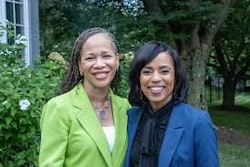
When Selma director Ava Duvernay tweeted these words as part of a Twitter essay about her experience with the movie Straight Outta Compton, it sparked a discourse about not only the movie and its characters and their relationship with women, but about the broader relationship between hip hop and women.
Hip hop is no different than other vehicles for social and political advancement and expression in the Black community: at best, patriarchal and, at worst, abusive. Or, as Duvernay said, women in the culture often have been seen as “Window dressing at most. Disposable at worst.”
Whether it is music, a la hip hop, politics, a la the Black Panther Party, or religion, a la the Black church, Black women have often found themselves subjected to the misogyny of a male-dominated culture within a larger male-dominated society.
“Hip hop is simply unapologetically sharing what happens in other settings, particularly the Black church,” said Dillard University President Dr. Walter Kimbrough, who is known as the “Hip-Hop Prez.”
“We still have not fully accepted women in leadership in the church, often subjugating them to second class status, even preventing them from being in some pulpits just because of their gender,” said Kimbrough, who also teaches a course called “Hip-Hop, Sex, Gender and Ethical Behavior” at the university. “But I think hip hop then allows us an opportunity for a fuller critique of all forms of patriarchy in our communities.”
Scholars across the country weighed in on Twitter.














